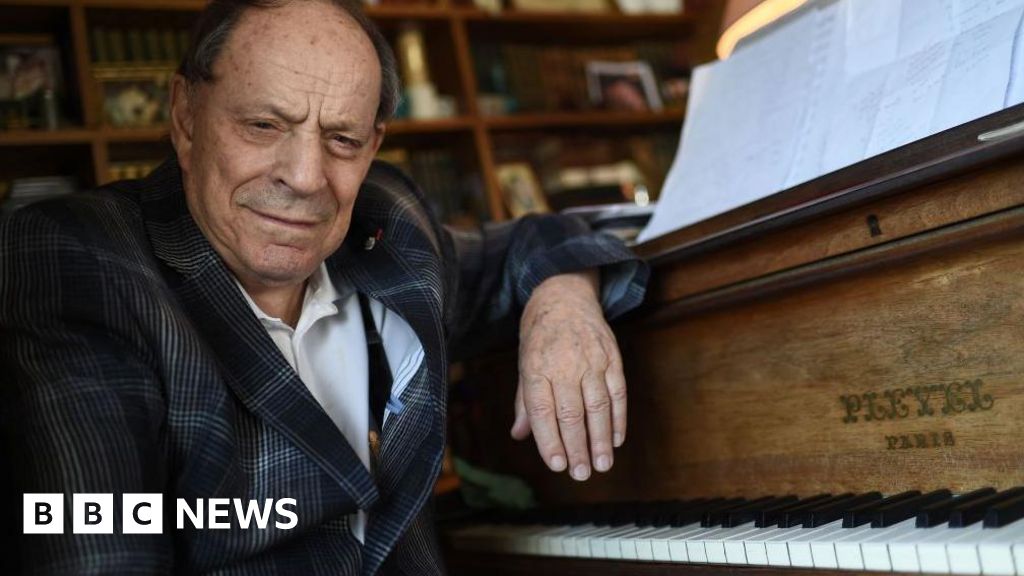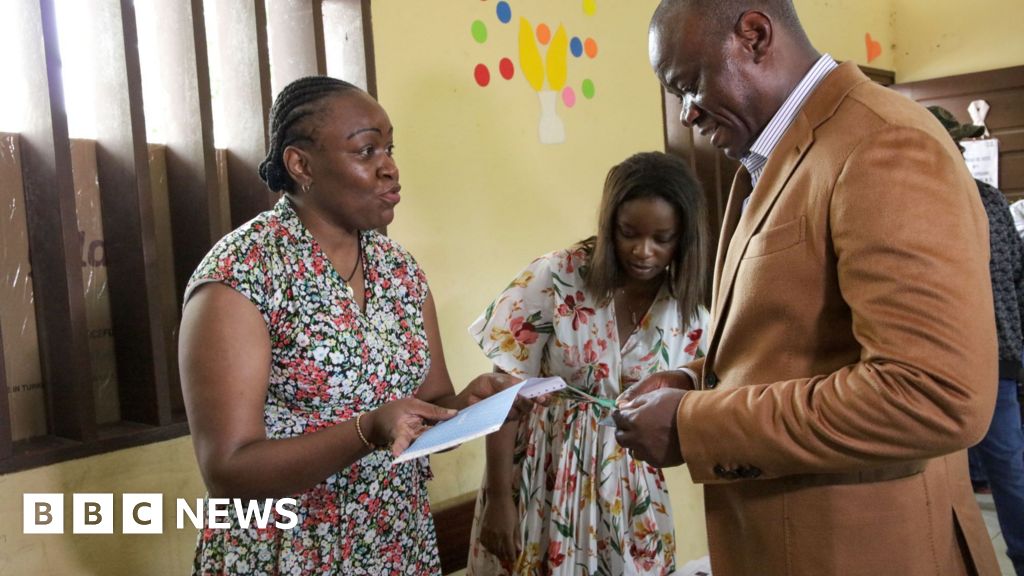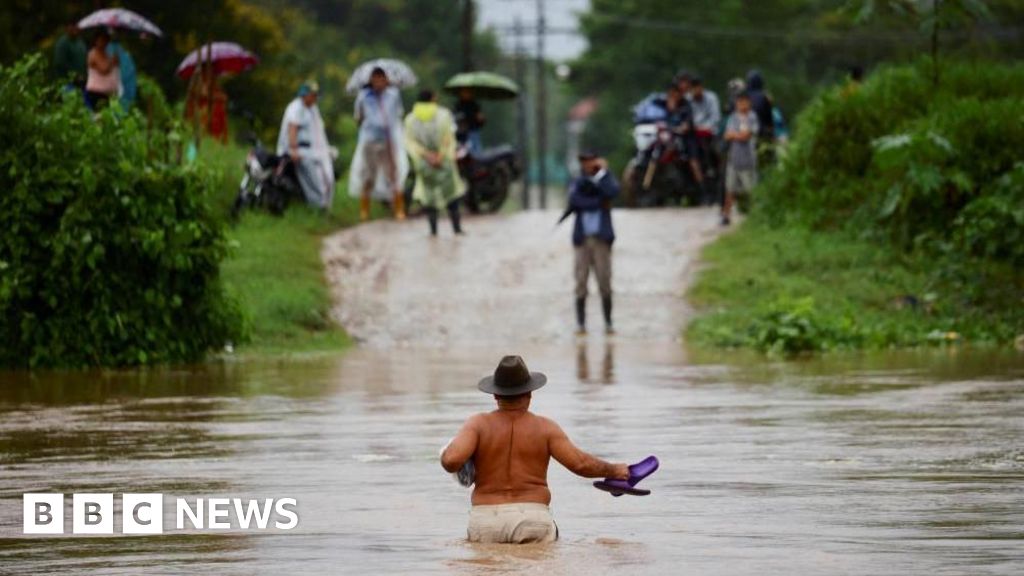ARTICLE AD BOX
By David Gritten
BBC News
Image source, EPA
Image caption,Iran has insisted that its nuclear programme is entirely peaceful
Iran has been censured for not fully answering the global nuclear watchdog's questions about uranium particles found at three undeclared sites.
The International Atomic Agency's board passed a resolution drafted by the US, UK, France and Germany that urges Tehran to co-operate with its probe.
The IAEA's director general said it had not received "credible" explanations for the presence of uranium particles.
Iran denounced the move as "political, unconstructive and incorrect".
The resolution - the first against Iran since June 2020 - expresses "profound concern that the safeguards issues related to these three undeclared locations remain outstanding due to insufficient substantive co-operation by Iran". It also urges the country to "act on an urgent basis to fulfil its legal obligations".
But Iranian foreign ministry spokesman Saeed Khatibzadeh tweeted that they had "put their short-sighted agenda ahead of [the] IAEA's credibility" and that Iran had "the world's most transparent peaceful nuclear programme".
"The initiators are responsible for the consequences. Iran's response is firm & proportionate," he added.
Before Wednesday's vote Iran announced that it had turned off two IAEA surveillance cameras installed at an unnamed nuclear facility as part of a 2015 deal with the US, the three European countries, China and Russia.
The agreement saw Iran agree to curb its nuclear programme in relief from economic sanctions. But it has been close to collapse since the US pulled out unilaterally and reinstated sanctions four years ago and Iran responded by breaching key commitments.
Indirect talks between the US and Iran in Vienna aimed at reviving the deal have stalled since March.
Russia's mission to the IAEA, which voted against the resolution along with China, tweeted that the Western powers did "not get the sensitivity of the moment", adding: "Clearly #ViennaTalks taught them nothing: pressuring Tehran entails escalation."
Iran's nuclear programme: What's been happening at its key nuclear sites?
Iran insists that it has never sought nuclear weapons, but evidence collected by the IAEA suggests that until 2003 it conducted activities relevant to the development of a nuclear bomb.
On Monday, IAEA Director General Rafael Grossi told its 35-nation board of governors that he was still unable to confirm the correctness and completeness of Iran's declarations under the Comprehensive Safeguards Agreement of the Treaty on the Non-Proliferation of Nuclear Weapons (NPT).
Mr Grossi said that was because Iran had "not provided explanations that are technically credible in relation to the agency's findings at three undeclared locations", which he named as Turquzabad, Varamin and Marivan.
According to the IAEA's latest report, environmental samples taken by inspectors at the three locations in 2019 or 2020 indicated the presence of "multiple natural uranium particles of anthropogenic [man-made] origin".
Mr Grossi said Iran had also not informed the IAEA "of the current location, or locations, of the nuclear material and/or of the equipment contaminated with nuclear material, that was moved from Turquzabad in 2018".
The director of the Atomic Energy Organisation of Iran (AEOI), Mohammad Eslami, insisted on Wednesday that his country had "no hidden or undocumented nuclear activities or undisclosed sites".
Iran had maintained "maximum co-operation" with the IAEA, he said, adding that "fake documents" had been passed to the watchdog as part of a "maximum pressure" strategy provoked by Israel, its arch-enemy.
Image source, Anadolu Agency
Image caption,Iran is enriching uranium using more advanced centrifuges than permitted under the nuclear deal
Mr Grossi also warned on Monday that Iran was "just a few weeks" away from having stockpiled enough enriched uranium to create a nuclear bomb. Enriched uranium is used to make reactor fuel, but also nuclear weapons.
The IAEA's latest report said Iran had 43.1kg (95lb) of uranium enriched to 60% purity, which Kelsey Davenport of the US-based Arms Control Association said could be enriched to 90%, or weapons-grade, in under 10 days. However, Ms Davenport noted that "weaponization" - manufacturing a nuclear warhead for a missile - would still take one to two years.

 2 years ago
85
2 years ago
85








 English (US)
English (US)